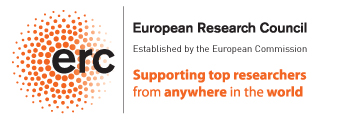The Origins of the Vernacular Mode - OVERMODE
The project focused on the vernacular catechetic and theological texts originating in the region of contemporary Central and Eastern Central Europe. At the beginning of the project the majority of these texts could be described as untouched or almost untouched by research, be it of philological, historical or literary studies. They did not stand in the focus of the nationalistically defined historiograhies and philologies because of their derivative character, their orientation towards the less educated lay readers, repetitiveness and a lack of exclusivity, defined within the frame of nationalistic historical master narrative.
The research was based on the methodological and theoretical approaches developed in the contemporary cultural studies and historiography. It was therefore possible to reappraise the respective texts and to define their importance for a whole range of questions, especially concerning the research of medieval identity, a key research area at the Institute for Medieval Research. New methods elaborated at the institute were successfully applied to the material chosen for the scrutiny in the project. The project had the purpose to make the Eastern Central European material available for the international scholarly community and to develop new approaches for the re-formulation of the key historiographic master narratives in the given area.
OVERMODE focused on the contextualization of the production of the vernacular religious texts, understood as important witnesses of pan-European religious communication within the Latin intellectual culture and within the vernacular religious production in individual regions of Europe. This contextualization was elaborated by the means of the reconstruction of intertextual correlations, personnel networks (authors, commentators, translators, copyists) and communities of readers. Individual methodological focal points of the project, thematized in two dozens sub-projects,were the theory and practice of the translation and their transformation from the Middle Ages up to the present day, codicology, paleography, semantics and semiotics.
Interlingual translations originating in the Kingdom of Bohemia were analysed as part of the project. This material is marked by a particular complexity due to multilingual character of the region and the kingdom's intermittent position as centre of the Holy Roman Empire, complete with the earliest university north of the Alps at Prague, which led to an increased transfer of texts in all directions. The project also examined changes in the interpretation of Christian doctrine that brought with them changes in the religious and, consequently, the political discourse. The transformations of collective and individual identities were investigated from the perspective that the individual texts constitute a mode of collective or individual identification of the self and of others within society. Also examined were the changes in socio-political semantics in the period of social upheavals that followed the Hussite revolution of the second decade of the 15th century, an event that must be regarded as a manifestation of circumstances peculiar to Central and Eastern Central Europe.



